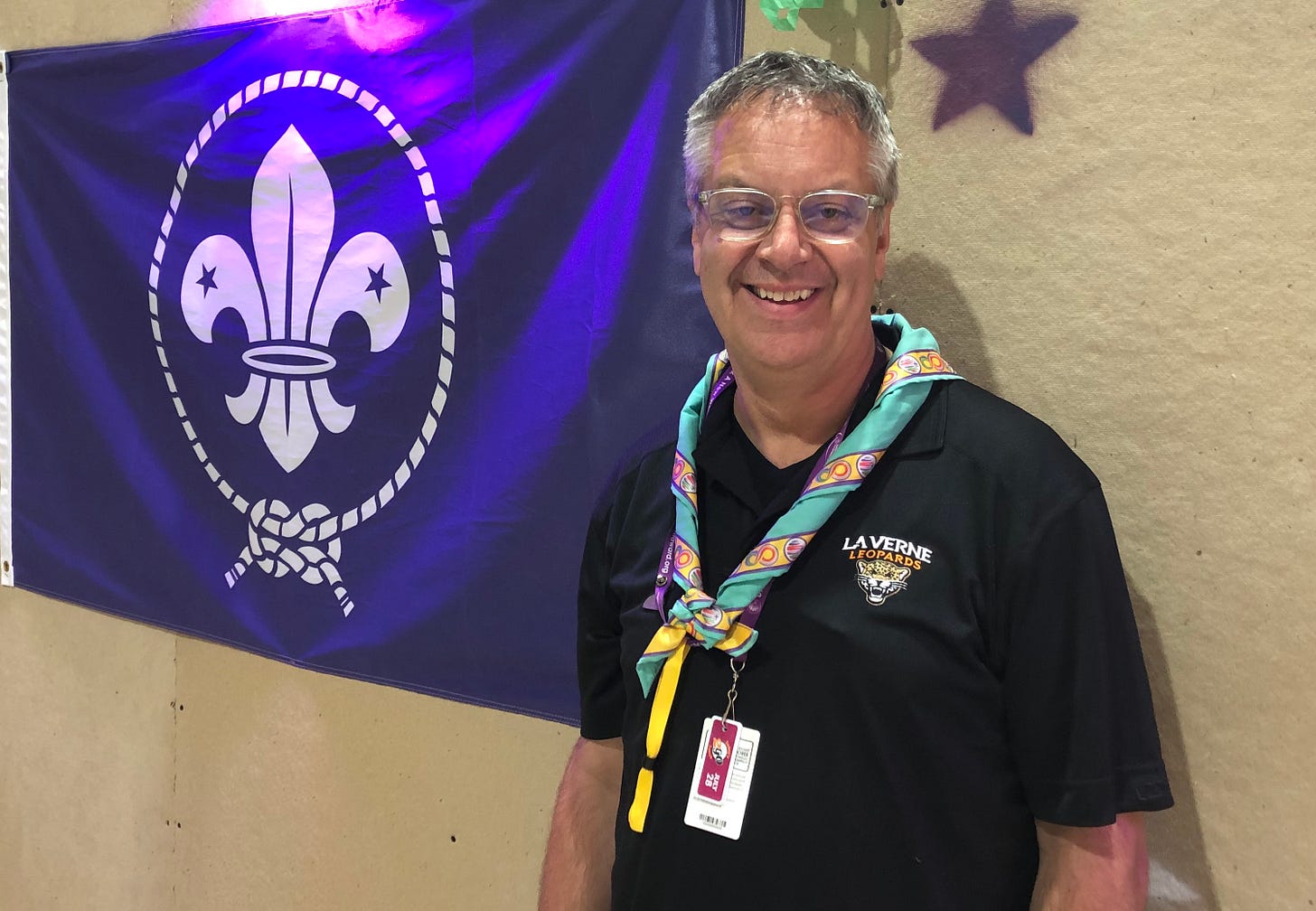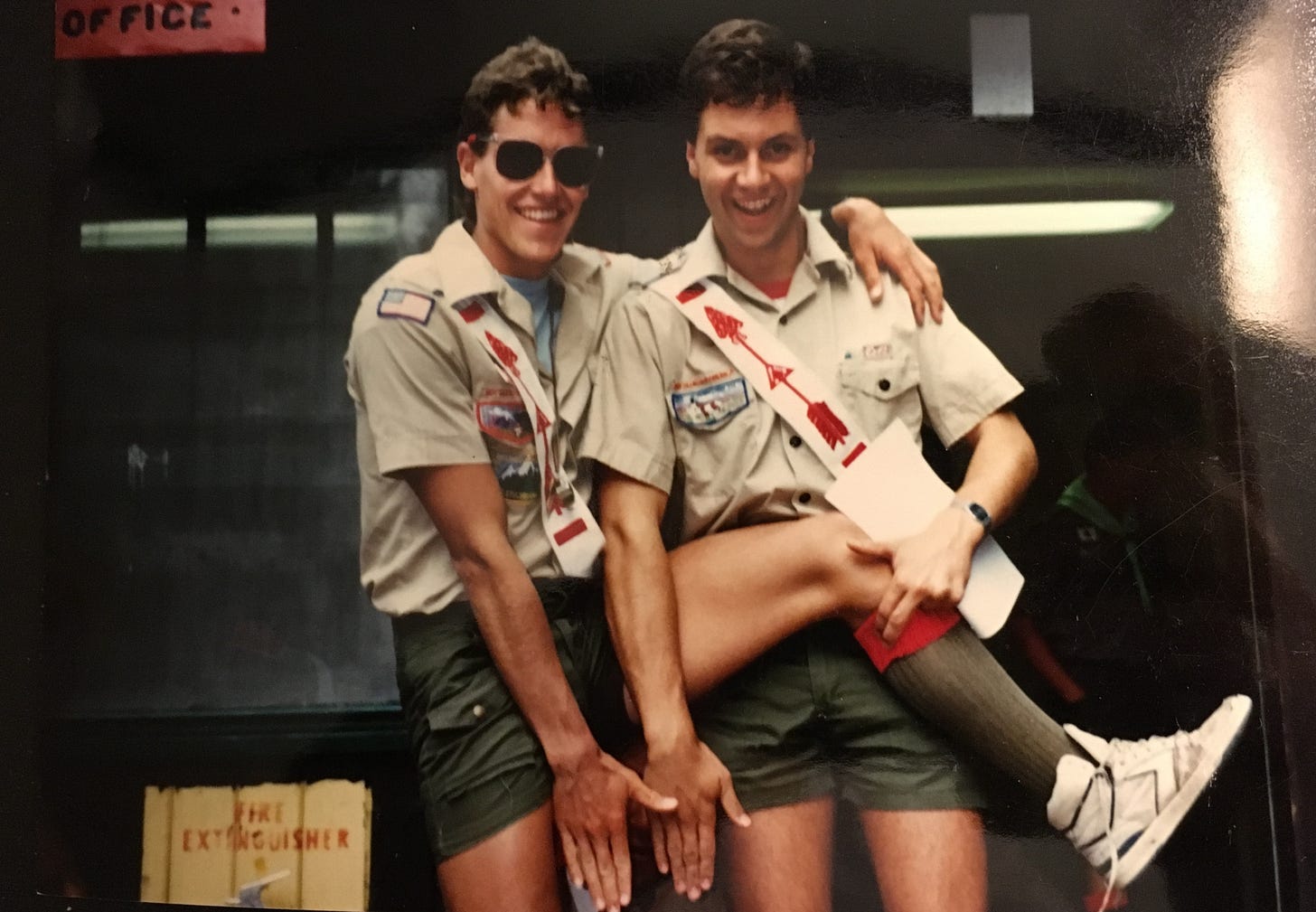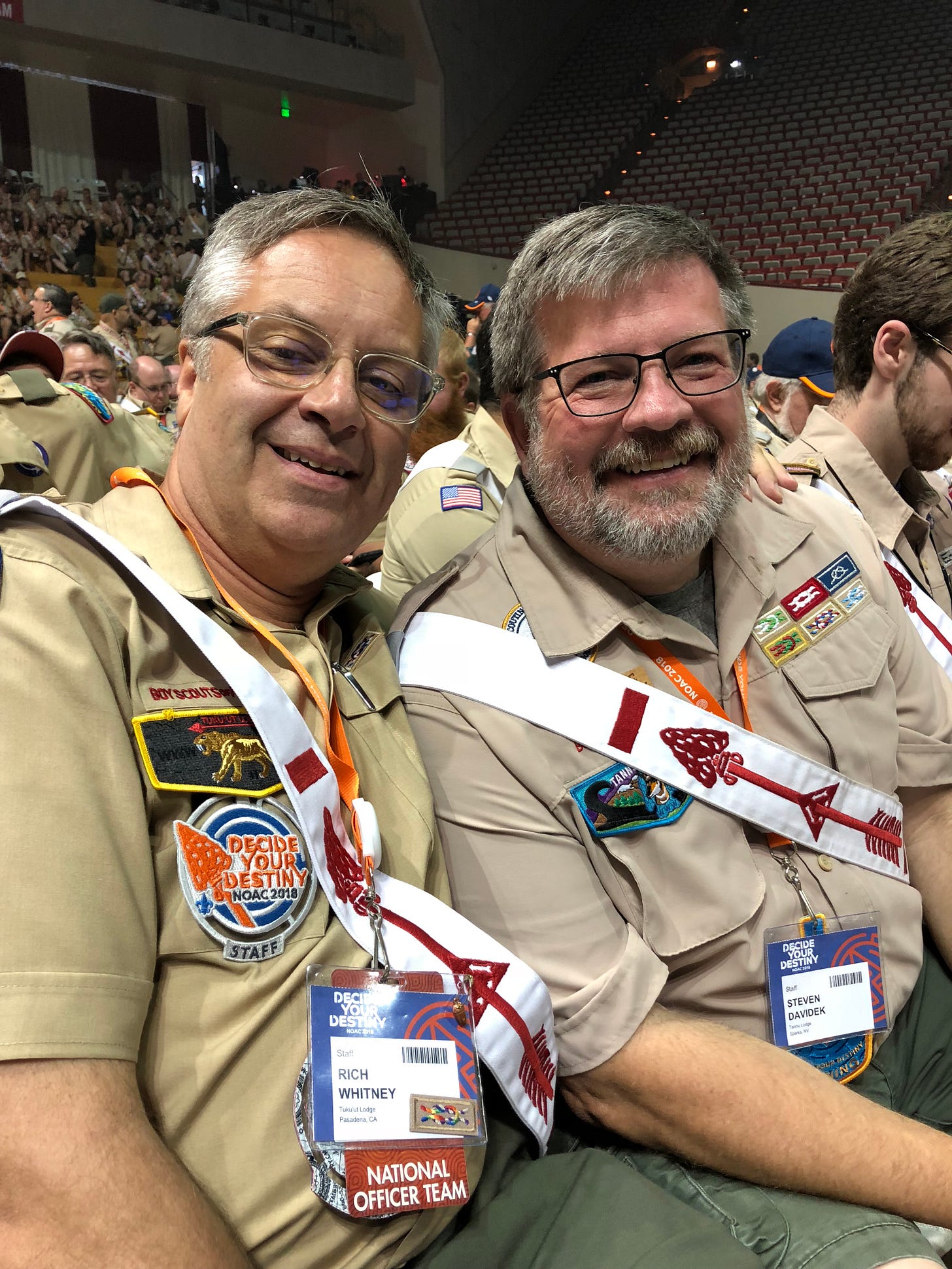Pride Profile: Rich Whitney
"There are not enough words to express the pure joy and happiness I have for being part of the Scouting family again."
Pride Profiles are stories that revisit and introduce some of Scouting’s LGBTQ+ leaders and activists. This story was part of a collection of profiles destined for a national Scouting conference that was cancelled last year due to the pandemic. So I wanted to share it here, and give you all a chance to learn about Rich Whitney’s experience in Scouting.
In this profile, I’ve also included some footnotes to explain Scouting jargon that some of my readers may not be familiar with.
Think back to your younger Scouting self, maybe as a first-time lodge1 officer. What would you tell that person?
I was the Tannu Lodge secretary and then a two-term lodge chief. I went on to be the Section W3B section chief2 and worked on training at NOAC3. I attended two National Jamborees. I served on camp staff at two different council camps, and served as program director at Camp Royaneh. During all of this I knew I was gay, but there was no acknowledgement of [it] by me. It was a fear of what I was trying to not know. I kept myself overly busy and worked so hard on my own approach to being the lodge leader.
It helped me avoid any real conversations about myself. I tried to do everything in school, Scouts, volunteer work, and in life. In my senior year I got really sick. It was exhaustion. At the time, I did not get it. I was just trying to prove to others, and mostly myself, that I was good, I could do it, I had value. I was a district executive4 for a very short time. Part of why I chose to leave was my career path was severely limited in the BSA as a gay man.
So, all of this to say to the many today who were the me of then: Every single thing we do in Scouting is worth it. It will get better. We have to meet ourselves first before we can know our place with others. Work hard at who you are and what you do. However, you have to know now you are good enough and you are worth it. All of it. Your hard work is making a difference. Stop to realize you are good. Your value is in your presence and the work that you do. It gets easier on the other side of coming out, but that mountain is big, scary and steep. Don’t make the mountain bigger, just be you!
What future do you want to see for LGBTQ+ people in Scouting?
I want the same for all people in Scouting: To truly understand the meaning of the Scout Oath and Law. Scouting is a place that helps us to realize the power of the Scout Law. I think we should change the Law to include the words, “I am,” before each of the 12 points. This changes it from a credo to a constant and consistent personal values check.
I want LGBTQ+ people to just be part of the community, without regard for labels. Not to take away from our identity at all, but to be included at the same level as everyone else. I want for us to walk in first as people and part of the family and then more of our depth and breadth starts to unfold.
Why is Scouting worth it?
I chose not to be affiliated with the BSA for about 25 years. At the time it was out of more fear that my Eagle Scout would be taken away. That may have been an urban myth, but in my head it was real.
I was angry that the 12 points of the Scout Law seemed like it had conditions. I was supposed to espouse loyalty to a program, but was the program loyal to me? It did not feel like it. But, every single time I heard about a young man joining or participating, I told him that Scouting made me the person I am. I told them I loved every minute of my time in Scouts. People were confused by this. The program, my troop, my friends, my development, and all of my experience was something I would never change or want to miss out on. I wanted that for every youth available.
Scouting formed me from the time I joined Cub Scouts. I was always surprised by the things I realized I just knew from Scouting that seemed novel to colleagues. As Scouts those leadership and life skills were just part of the conversation and not just a lesson to be learned.
What else should we know about your Scouting story?
I have a mentor in Scouting that had been urging me to get re-involved for those same 25 years. He never gave up on me. I followed him through many of the same positions in Scouting. He was my model. He made things happen for me as a Scout, and again 25 years later when he “made me” get back involved.
My love for him and his belief in me is immense. My first event back was a National Leadership Seminar. I went to learn about the current program. NLS in 2016 was very different than the NLS I went to in the early 1980s. I was not ready for my physical and emotional response to that NLS weekend. First, I was beyond thrilled to be in a uniform again. I was home. I immediately connected to everybody there. We had a common experience and a common bond. Some of them weren’t even born when I chose to “step out,” but we were brothers. I wasn’t ready for the deep sadness of not being involved. I wasn’t ready for the complete anger I had for not feeling welcome or allowed to participate or being an out gay man.
I would post pictures on Facebook from events I started to participate [in]. Out of nowhere friends (Scouting related and non-Scouting alike) would tell me they could feel my joy and the happiness about being in Scouting again. I tell that mentor quite often, “I don’t know if I should hug you or hit you for how busy I am in Scouting again.” There are not enough words to express the pure joy and happiness I have for being part of the Scouting family again.
This interview has been edited and condensed for clarity.
Lodges are the local units in the Order of the Arrow, Scouting’s national honor society.
Sections cover a larger region and consist of multiple lodges.
NOAC is the National Order of the Arrow conference, the second-largest Scouting event after the National Jamboree.
District executives are local Scouting employees.






